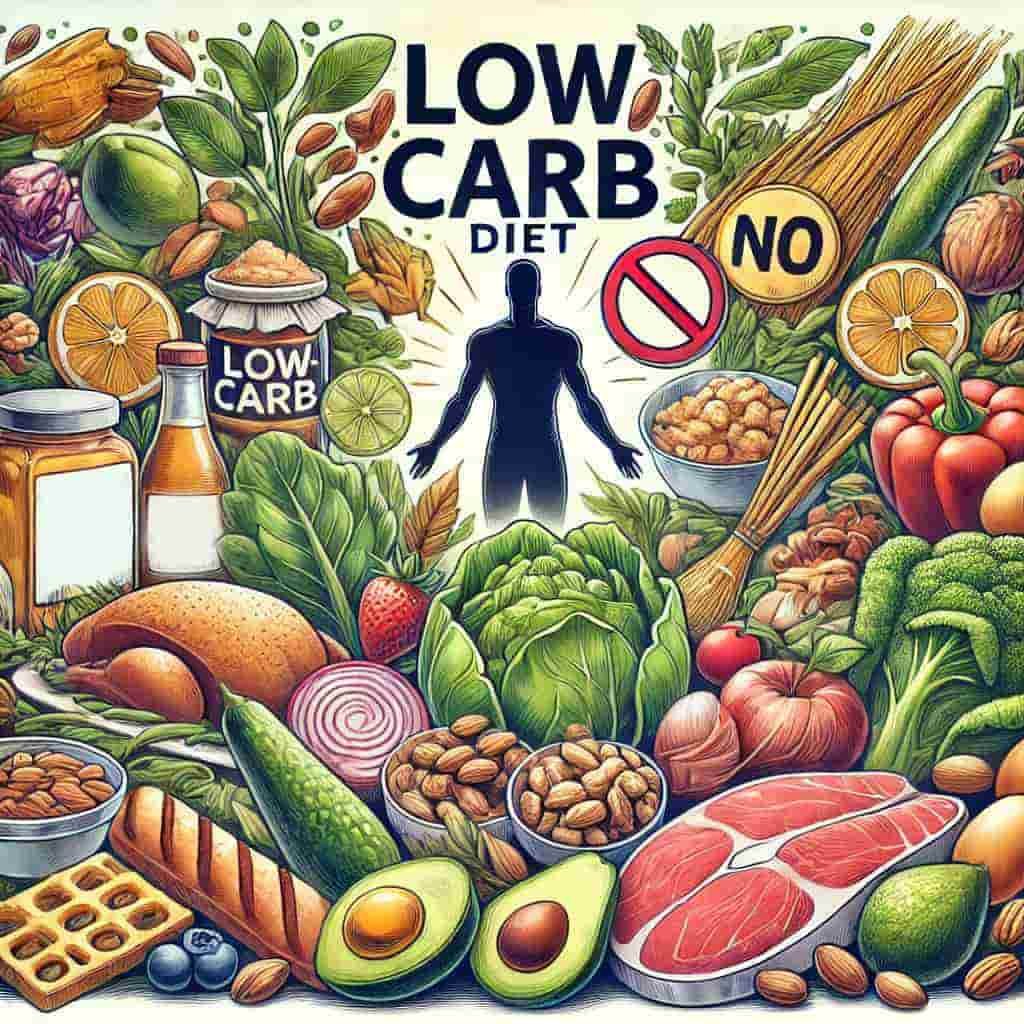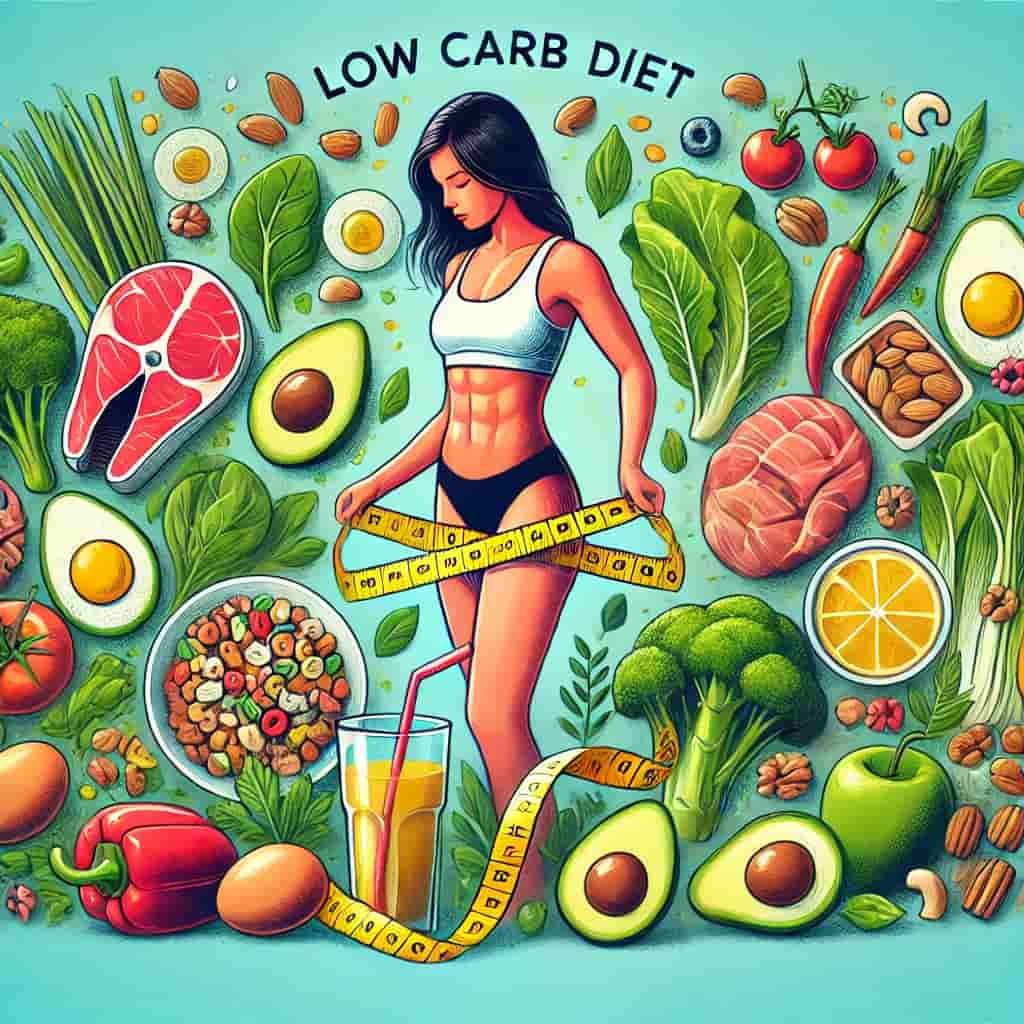If you’re like me, you’ve probably stood in the grocery aisle with a cart full of “healthy” foods and asked yourself: “Am I making the right choice here?”
The debates about diets can be overwhelming, especially when there’s so much talk about things like low glycemic diets and low carb diets. In this post, I’ll break down what each of these diets is all about, look at their pros and cons, and help you decide which one might be best for you. After all, the goal is to be healthy, not confused!
Understanding the Low Glycemic Diet and Low Carb Diet
To keep it simple, both of these diets focus on managing carbohydrates, but they approach it differently.
Low Glycemic Diet
A low glycemic diet is all about choosing foods that have a lower glycemic index (GI). The GI is a measure of how quickly foods raise blood sugar levels.

In a low glycemic diet, you eat foods that release sugar slowly into your bloodstream, which helps keep your energy levels steady and avoids spikes in blood sugar. You’d be looking at things like whole grains, legumes, and most fruits.
Low Glycemic Diet: Pros and Cons
Let’s talk about the upsides and potential drawbacks of going low glycemic.
Pros
- ✔️ Steady Energy Levels: Since low GI foods release sugar gradually, they help maintain steady energy without the crashes you might get from high-carb snacks.
- ✔️ Supports Blood Sugar Control: If you’re concerned about diabetes or blood sugar levels, a low glycemic diet can help keep them in check. This can be particularly helpful for people managing Type 2 diabetes.
- ✔️ Wide Variety of Foods: Unlike some restrictive diets, the low glycemic approach allows for a varied intake, including fruits, veggies, whole grains, and lean proteins.
Cons
- ❌ Difficult to Measure GI for Every Meal: Tracking the GI value of every food can be time-consuming and confusing, especially since combining foods can alter their overall glycemic impact.
- ❌ Might Be Slow for Weight Loss: Unlike some restrictive diets, the low glycemic approach allows for a varied intake, including fruits, veggies, whole grains, and lean proteins.
Low Carb Diet
The low carb diet, on the other hand, reduces the total amount of carbohydrates you consume. This doesn’t necessarily mean you avoid carbs altogether, but you do stay away from high-carb foods like bread, pasta, and sugar-rich snacks.

The idea here is that by cutting down on carbs, your body starts burning fat for energy, which can help with weight loss and managing certain health conditions.
Low Carb Diet: Pros and Cons
Now let’s take a look at the low carb diet, which has its own benefits and challenges.
Pros
- ✔️ Effective for Weight Loss: Low carb diets are famous for helping people drop weight quickly, especially in the initial stages. This is partly because reducing carbs often leads to reduced water retention.
- ✔️ Can Improve Metabolic Health: Studies suggest that low carb diets can help with metabolic issues like insulin resistance, making them a popular choice for people with prediabetes.
- ✔️ Reduces Sugar Cravings: Over time, eating fewer carbs can reduce sugar cravings, making it easier to maintain healthy eating habits.
Cons
- ❌ Restrictive and Challenging : Let’s be honest—cutting carbs is tough. Bread, pasta, rice, even some fruits—they’re all limited or off-limits. This makes it challenging to stick to, especially in social situations.
- ❌ Potential Nutrient Deficiencies : When you cut out a lot of carb-rich foods, you may miss out on essential nutrients like fiber and certain vitamins found in whole grains and fruits.
Comparing Low Glycemic and Low Carb Diets
So, what’s the bottom line when you put these two diets side by side?
| Diet Type | Focus | Best For | Downside |
|---|---|---|---|
| Low Glycemic Diet | Manages blood sugar | People wanting balanced energy levels | Tracking glycemic index can be tricky |
| Low Carb Diet | Lowers total carbs | Quick weight loss, managing diabetes | Restrictive, risk of nutrient gaps |
How to Choose the Right Diet for You
Choosing between a low glycemic diet and a low carb diet really depends on your goals and your lifestyle. If you’re looking for steady energy and have a focus on long-term health, the low glycemic diet is probably more sustainable and less restrictive.
On the other hand, if you’re looking for rapid weight loss or need a stricter approach to manage insulin resistance, then a low carb diet could be the better bet.
Low Glycemic Diet for Energy
If you’re someone who struggles with the dreaded afternoon energy slump, a low glycemic diet could be your best friend.

The slow release of energy from foods like oatmeal, legumes, and sweet potatoes can keep you going strong without those dreaded crashes.
Low Carb for Weight Loss
For people who need to see quick results—maybe you’re trying to lose some weight for an event or kickstart a healthier lifestyle—cutting carbs can deliver results fast.

The trick here is to make sure that, when you’re cutting carbs, you’re still getting enough healthy fats, proteins, and nutrients from vegetables to keep your body functioning well.
Conclusion
When it comes down to choosing between a low glycemic diet and a low carb diet, it’s all about finding what fits your life best. A low glycemic diet offers flexibility and steady energy levels, making it ideal for anyone looking to create long-term healthy habits. A low carb diet, on the other hand, is great for those who want fast results and have the discipline to manage the restrictions.
No matter what, the key is to pick a plan that feels sustainable to you—one that you can see yourself sticking to, not just for a few weeks but for the long haul. After all, the best diet is the one you can actually live with!
Related Posts:
- Low Carb Indian Foods for Weight Loss and Health
- How Processed Foods Cause Weight Gain?
- Exploring 15 Healthy Foods Loaded with Beneficial Carbohydrates
- Your New Favorite Drink – A Delicious Apple Shake Recipe
- Can Apple Cider Vinegar Aid in Achieving Weight Loss? A Detailed Analysis
FAQs About Low Glycemic and Low Carb Diets
Which diet is better for diabetes?
The low glycemic diet is often recommended for managing diabetes since it helps control blood sugar levels more steadily. However, low carb diets can also be effective in reducing insulin resistance. It’s best to consult with your doctor to determine which diet fits your needs.
Can I combine elements of both diets?
Absolutely. Many people find success by combining elements of both. For example, you could reduce carbs overall and make sure the carbs you do eat are low glycemic. This can give you the best of both worlds.
Will I lose weight faster on a low carb diet?
Typically, yes. Low carb diets are known for rapid initial weight loss, especially due to water weight. That said, sustainable, long-term weight loss is possible with either diet, depending on how consistent you are.
Is one diet healthier than the other?
It depends on your specific health goals. Low glycemic diets are generally more sustainable long-term and provide balanced nutrition. Low carb diets can be beneficial for rapid weight loss or managing certain health conditions but might be harder to maintain.
Are there any side effects of going low carb?
Yes, some people experience the “keto flu”—fatigue, headaches, irritability—as their body adjusts to burning fat for energy instead of carbs. These symptoms usually pass within a few days.
How do I know if a food is low glycemic?
Low glycemic foods generally include things like non-starchy vegetables, legumes, and whole grains. There are many online resources that provide glycemic index values, or you could keep a list of common low GI foods handy.